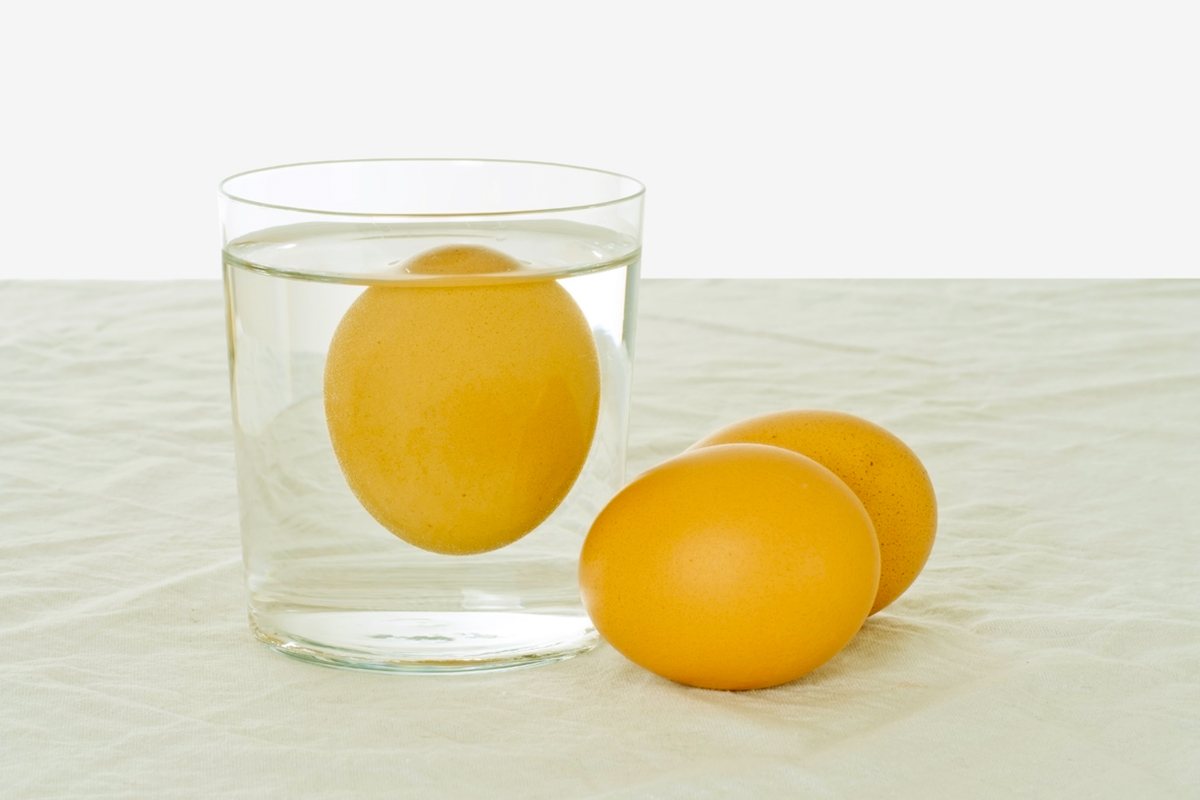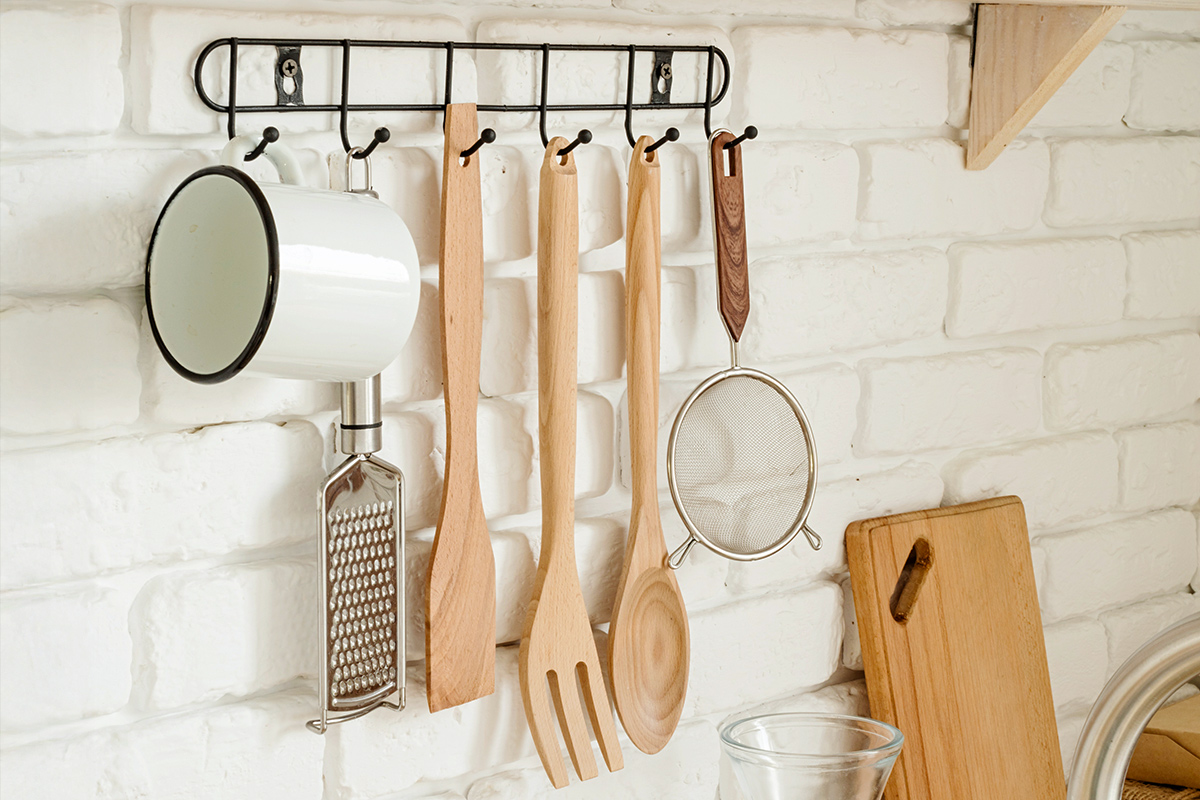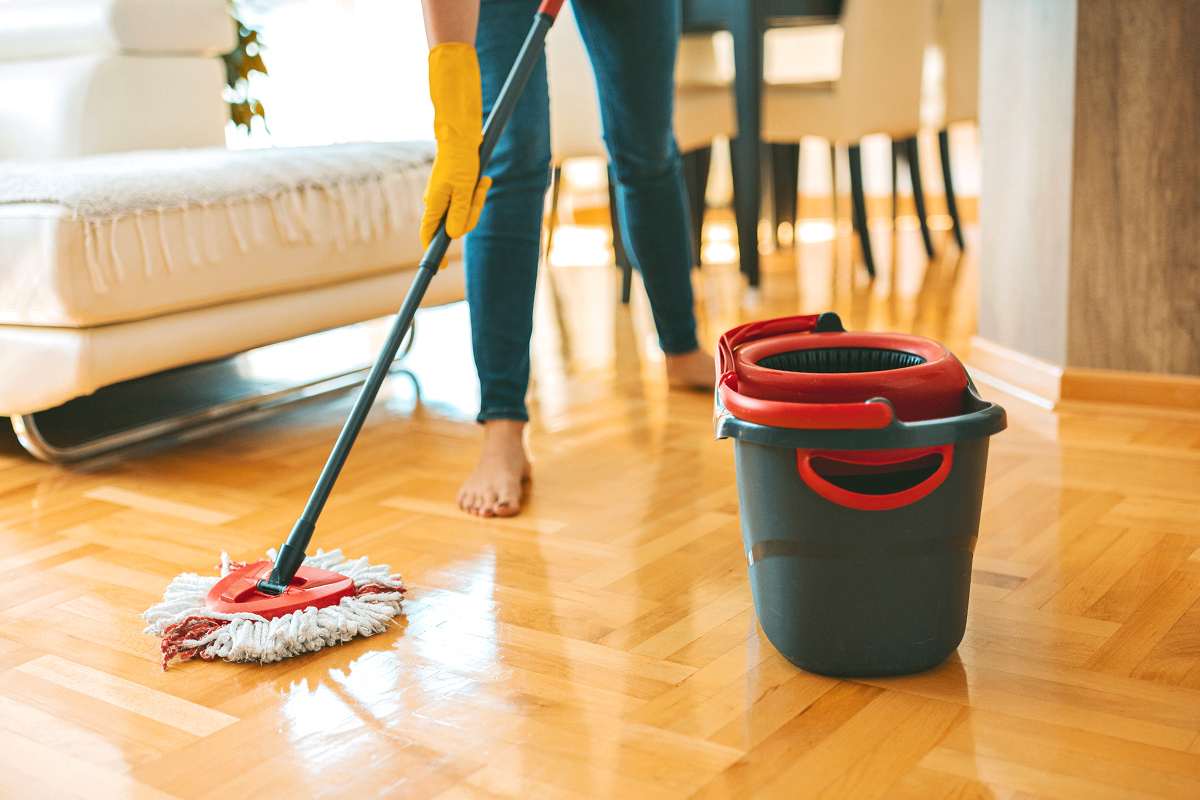Whether you’re preparing to cook a Denver omelet for breakfast or about to whip up a creamy lemon curd, it’s always a good idea to check the freshness of your raw eggs. When stored in the refrigerator, eggs are typically good for three to five weeks from the date of purchase, according to the USDA.…
However, if the carton is long gone, or if you have your own backyard chicken coop with no way of remembering how long you’ve had the eggs, you may be wondering if there’s a method for determining their freshness. Many home cooks have heard of the “float test,” in which an egg is placed in a glass of water to see if it sinks or floats. If an egg sinks, it’s considered fresh and safe to eat; if it floats, that suggests it’s past its prime.
But is this hack scientifically proven, or is it just an old wives’ tale? Let’s find out.
The Theory Behind the Egg Test
As an egg ages, it loses moisture — primarily from the egg whites — and air enters through the shell’s pores, filling the void and forming an air sac inside. This air sac makes the egg less dense, causing it to float in water.
While the float test can indicate an egg’s freshness, it doesn’t confirm whether it’s safe to eat. Eggs can be contaminated with salmonella, either when the bacteria pass through the shell or if they are present from formation due to an infected hen. And salmonella can lead to food poisoning if a compromised egg is consumed.
The best way to determine whether an egg has spoiled is by giving it a good sniff. You can do this while the egg is inside its shell or cracked open — if it has a sulfurous smell, or the yolk or whites look discolored (potentially with pink, green, or black spots), throw it away. The shell may also have cracks, sliminess, or a powdery residue, suggesting bacteria have gained a foothold.
Don’t risk it. If you think your egg is rotten, err on the side of caution and discard it. A bad egg can result in a salmonella infection, which can cause diarrhea, vomiting, and fever.
More from our network
House Outlook is part of Inbox Studio, which publishes content that uplifts, informs, and inspires.
Final Verdict
The egg float test is a somewhat reliable measure of an egg’s age, not its safety. In the U.S., commercially sold eggs are washed and sanitized, a process that removes the natural “bloom” or protective cuticle that seals the shells’ pores. Because this protective layer is gone, there’s a slight chance that even a relatively new egg, if stored in very dry conditions, might develop an enlarged air sac. However, it’s highly unlikely that an older egg would not develop an enlarged air sac, given how porous the shells are.
A fresh egg should have no noticeable smell — if you’re in the clear and want to gauge its quality, by all means, drop it in a glass of water to find out. Older eggs may have thinner whites, flatter yolks, and a slightly faded color. This doesn’t mean they’re spoiled, though; many home cooks actually prefer such eggs for hard-boiling. Their weakened membranes and higher pH levels make them easier to peel — perfect for making egg salad, deviled eggs, or a creamy potato salad.




















